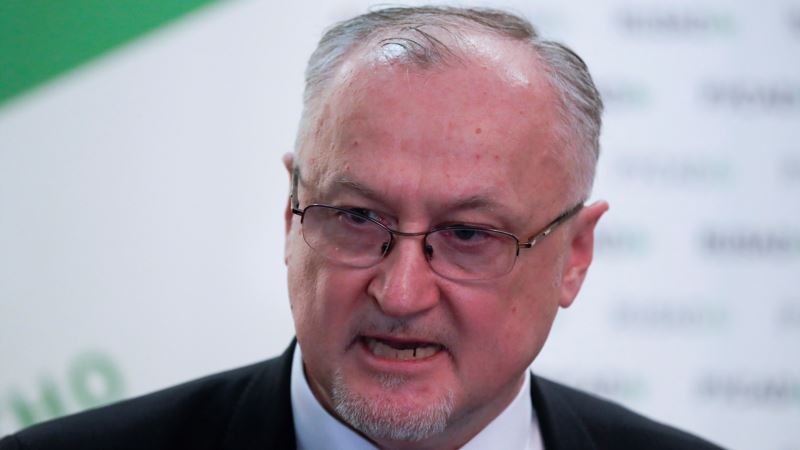
Repeated irregularities and systematic cheating cost Russia a place in the 2018 Winter Olympics, and a finding earlier this month that Russia’s anti-doping body was still noncompliant led to the fresh ban on Russia’s participation in international events in nearly all major sports.
The bans mean Russia’s flag and anthem will not be allowed at events such as the Tokyo 2020 Olympics and soccer’s 2022 World Cup in Qatar.
“In accordance with established procedure, today we have sent a package of documents to WADA,” Yury Ganus, the head of Russian’s anti-doping agency, RUSADA, told reporters on December 27.
RUSADA had said on December 19 it had “made a decision not to agree” with the WADA punishments.
Russia’s Investigative Committee concluded that all materials submitted to WADA this year regarding athletes’ drug tests were genuine.
That represented an informal challenge to WADA’s recent determination that the copy it received of a database from Russia’s national drug-testing laboratory was intentionally altered.
Some data were “removed, others altered and, in some cases, system messages were fabricated in an effort to hamper the work of WADA investigators,” the world doping watchdog had concluded.
The database, which includes Russian athletes’ blood-test results and other information stored by the national anti-doping laboratory in Moscow, is at the center of the exposure of Russia’s state-sponsored doping program.
WADA’s finding was key to its December 9 decision to declare RUSADA noncompliant and to apply the four-year ban on Russian teams.
At his annual news conference on December 19, Russian President Vladimir Putin repeated his accusations that Russia was being treated unfairly and suggested that the country’s athletes were the victims.
“The overwhelming majority of our athletes are clean, and then why must all of them suffer?” he said.
In some cases, as was the case during the 2018 Winter Olympics, individual Russians may be allowed to compete as neutral athletes after a series of tests administered by international bodies.
WADA concluded in 2016 that Russia had operated a “state-sponsored” doping program that included intelligence agency and other official involvement.
A disgraced former RUSADA head, Nikita Kamayev, died suddenly two months after resigning his post in late 2015.
The agency’s founding chairman, Vyacheslav Sinev, had died two weeks earlier under unclear circumstances.
A Russian court in 2017 issued an arrest warrant for former RUSADA chief Grigory Rodchenkov, who claimed to have helped orchestrate the doping program before turning whistle-blower and fleeing for the United States.